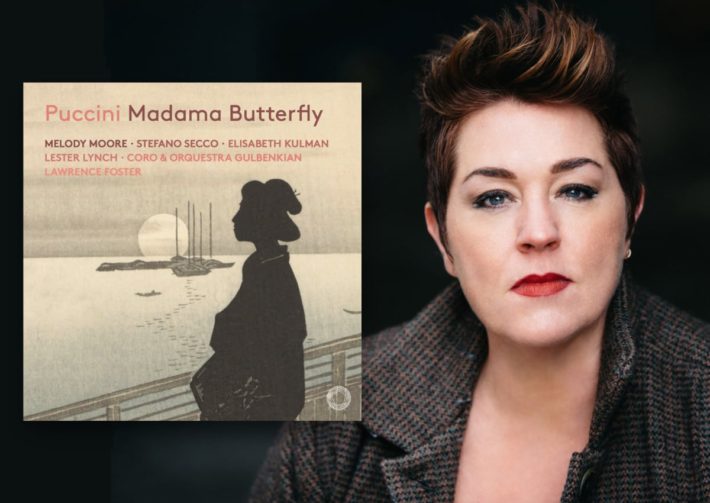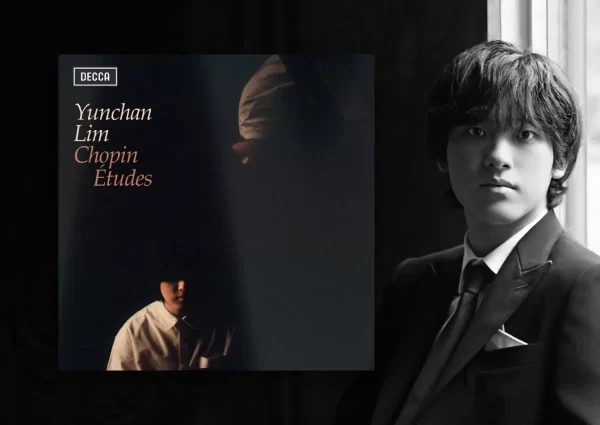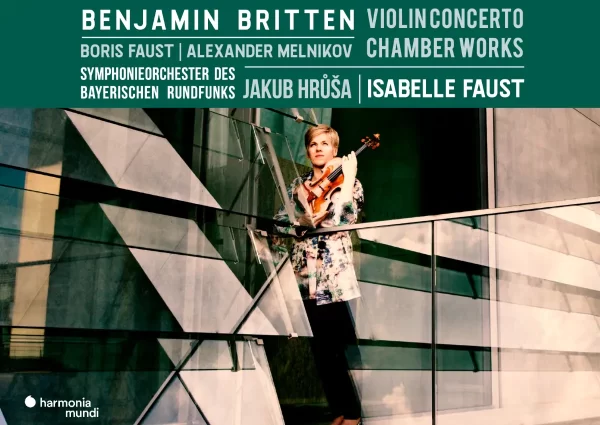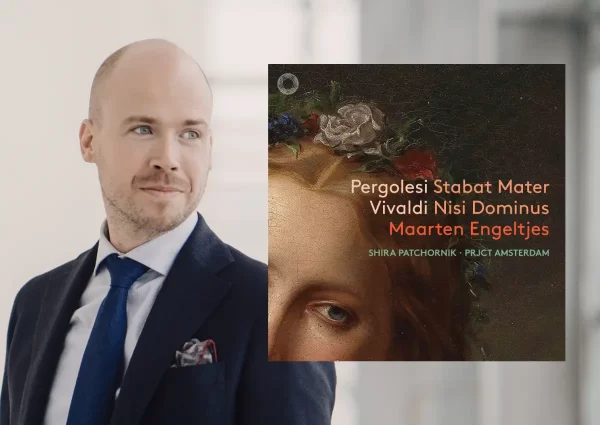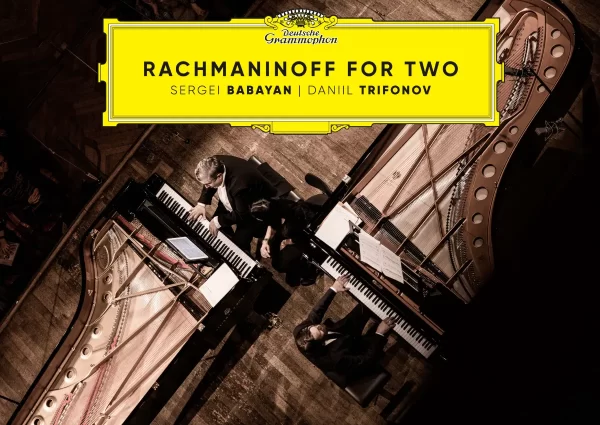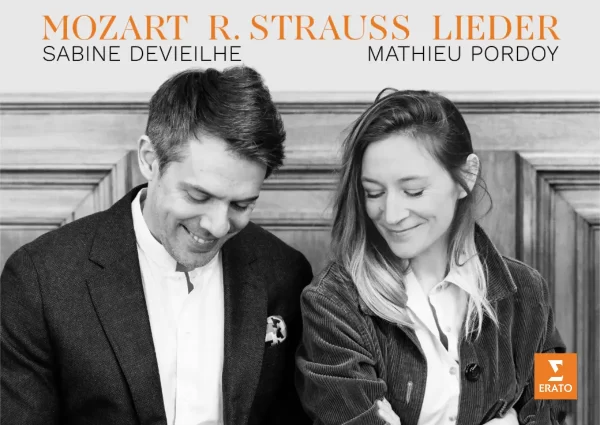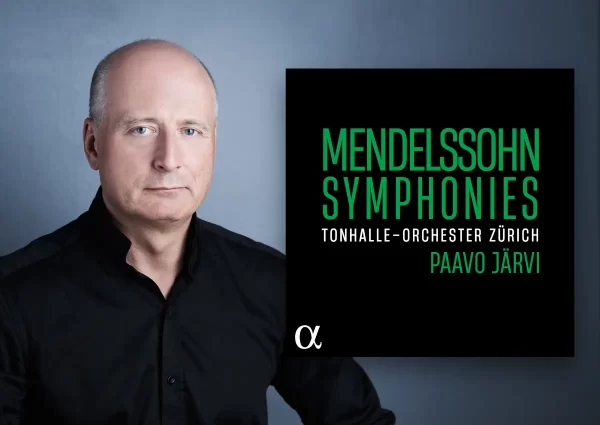Image: Jiyang Chen
In its first decade Pentatone issued only one opera recording, Glinka’s “Ruslan and Lyudmila.” But in 2011 the label began its series of Wagner recordings with “The Flying Dutchman,” and over the last ten years has built a catalogue that includes almost 40 complete operas. This newest Puccini release enters a particularly competitive field, including classic recordings conducted by Leinsdorf (RCA/Sony), Serafin (Decca) and Barbirolli (Warner Classics).
Before discussing this new album, a few caveats. First, one assumes that anyone considering a Pentatone recording is interested in superior sound, so comparisons are limited to two other recordings (Karajan/Decca and Pappano/Warner Classics) highly regarded for their audiophile quality. It also seems important to note that the sopranos heard on these recordings (Freni and Gheorghiu respectively) arguably lack the vocal weight to assume the role in a large theater, whereas the Butterfly heard on this new recording, Melody Moore, certainly could.
On first hearing, Moore’s interpretation came across as under characterized: the singing is consistently beautiful, but it did not fully inhabit the character. After repeated listening I realized my first impression was incorrect – Moore’s interpretation is convincingly subtle and nuanced. Her tone is steady and consistently warm, even above the staff, and breath control is impressive. When we first meet Butterfly, she is 15-years old, but Moore never sounds young. (Few sopranos do, but the fault lies with Puccini, whose demanding writing requires an experienced voice.) Nonetheless her singing throughout the first act has a believable charm and naivete. Moore adds a voluptuous color to her sound in the love duet that ends Act I, giving us a sense of how completely Butterfly has fallen for Pinkerton. And in the final act her excellent diction and varied tonal shadings makes us feel Butterfly’s slow emotional unraveling.
Stefano Secco’s Pinkerton is mostly successful: his arrogant disinterest at the beginning of the first act turns into something more ardently sincere in the “Vogliatemi bene” love duet (track 13). We hear his confidence wilt into cowardice in Act III, though his portrayal never elicits empathy, as does Pavarotti (Karajan) in his more complex interpretation. Elisabeth Kulman’s Suzuki and Lester Lynch’s Sharpless are well portrayed, and the smaller roles are attended to with clear diction.
Related Classical Music Reviews
- Review: “Amata della Tenebre” – Anna Netrebko, Soprano
- Review: “Anima Rara” – Ermonela Jaho, Soprano
- Review: “Italian Opera Arias” – Linda Richardson, Soprano
Foster and his Lisbon orchestra play with accuracy and verve, yet they lack the sumptuous weight of Karajan’s Viennese and Pappano’s forces in Rome. (Indeed, under Pappano’s stewardship, the Orchestra e Coro dell’Accademia Nazionale di Santa Cecilia are more than a match for the more illustrious Austrian forces.) The under characterization initially attributed to Moore is actually found in Foster’s leadership. He seems content to accompany the singers, ensuring the orchestra follows their ebb and flow and never overpowers. While these are, of course, excellent qualities, this is verismo opera. Emotions are overwrought and excessive, but Foster seems disengaged, or intent on tempering that excess.
Turn to Pappano or Karajan, and one immediately hears that the orchestra is integral to the storytelling. In Foster’s hands the opening scene of Act I meanders, the atmosphere is almost placid. Karajan, and especially Pappano have greater urgency and drive, establishing an excitement and tension that draws us in. Or sample “Un Del Di, Vedremo” (track 15), where Butterfly tells Suzuki (and us) that Pinkerton will return to her, and they will live happily ever after. This is a significant psychological moment: does she truly believe this is how things will play out? Or is she desperate to believe it, because if it isn’t true, she has gone against family, friends, and culture to love a man who is not worthy of her? Freni/Karajan and Gheorghiu/Pappano understand the complexity of this aria, and ensure it is an emotionally devasting moment. Voice and orchestra work together to make it so. Moore strives for a similar expressive catharsis, but Foster’s emotional reticence weakens the music’s emotional impact.
This lower emotional temperature also makes the final act less affecting. Both Karajan and Pappano have a sure sense of the emotional trajectory of the music, as Butterfly finally realizes Pinkerton has abandoned her. Both conductors give Freni and Gheorghiu all they need to convey the Butterfly’s desperation, anger, and sadness, which leads her to make a terrible choice. Once again, Foster shies away from the emotional excess, leaving Moore to communicate the tragedy of the moment on her own.
Pentatone’s ancillary materials are first rate, and the booklet includes a perceptive essay by Kasper van Kooten, as well as full libretto and its English translation. Balance between voices and orchestra is excellent, with engineered sound that is clear, wide-ranging, and warm. Unfortunately, fine singing is let down by a workmanlike orchestral leadership. Karajan and Pappano remain my primary recommendations.

Puccini: Madama Butterfly
Madama Butterfly – Melody Moore, Soprano
Pinkerton – Stefano Secco, Tenor
Suzuki – Elisabeth Kulman, Mezzo-Soprano
Sharpless – Lester Lynch, Baritone
Goro – Alexander Kaimbacher, Tenor
Lo Zio Bonzo – Kevin Short, Bass-Baritone
Il Principe Yamadori – Amitai Pati, Tenor
Kate Pinkerton – Liesbeth Devos, Soprano
Il Commissario Imperiale – Florian Köfler, Bass
L’Ufficiale del registro – Jorge Leiria, Tenor
Lo Zio Yakusidé – Tiago Batista, Bass
La Madre – Cecília Rodrigues, Mezzo-Soprano
La Zia – Filipa Passos, Soprano
La Cugina – Sara Marques, Soprano
Coro Gulbenkian
Orquestra Gulbenkian
Lawrence Foster – Conductor
Pentatone, PTC5186783
Recommended Comparisons
Read more classical music reviews or visit The Classic Review Amazon store
Follow Us and Comment:
Get our periodic classical music newsletter with our recent reviews, news and beginners guides.
We respect your privacy.

